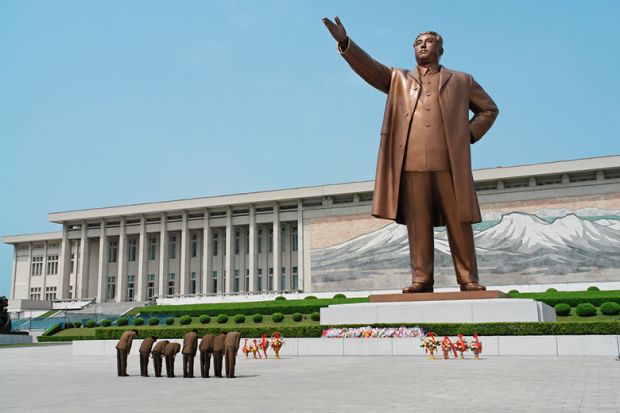In the aftermath of the Arab Spring, one of the most persistent questions in US government policy circles is whether the new availability of smartphones, CDs, USB sticks and radio broadcasts from abroad will help to bring down the regime in North Korea.
It is this question that Jieun Baek addresses, in a work in which she links her autobiography, as an American of Korean parentage and as a Harvard University undergraduate, to her interest in campaigning against North Korean human rights violations and to her motivation for writing this book.
The most powerful sections of her book are the excerpts from Baek’s interviews with 10 Seoul-based North Korean defectors – that is, when they speak for themselves. These are not victims but active agents of their own lives; articulate, reflective and tenacious. All are conscious of the insecurity of the existence of the 26,000 North Koreans living across the border in the south, and glad to have the opportunities that are available to them, but also missing home and family and very aware that to be successful and to avoid discrimination they must try to be as South Korean as possible. They know that many of their fellow escapees have committed suicide after struggling to adapt to an ultra-competitive way of life in a country where disdain for North Korean defectors is common.
These voices provide the nuance missing elsewhere from Baek’s book, which is handicapped by a thin research base and a dearth of critical analysis. Perhaps most seriously for a work published by a university press, its author seems unaware of the existing research on North Koreans’ access to information, including the careful analyses of Yonho Kim of the US Korea Institute at the School of Advanced International Studies at Johns Hopkins University and the prolific output of Martyn Williams via his San Francisco-based blog North Korea Tech, all of which are accessibly written and easily available online. Similarly, although Baek mentions her conversations with South Korean professors, she does not cite their research.
Inadequate research, along with a failure to engage in self-reflection (this is, after all, billed as a first-person account), results in an “othering” of North Korean defectors and those whose way of life is different from the author’s experience. This is summed up for me in a story Baek tells of a meal with friends and North Korean defectors in San Francisco, where “over hummus, olive oil and zaatyr, and lamb kebabs, we chatted excitedly” about North Korea. Baek is astonished that her Egyptian friend’s mother, who lives in Cairo, “didn’t come to the United States. Why willingly stay in a place that’s ridden with political upheaval, unpredictable riots, and spurts of violence”, especially as her friend is “pretty well off”? Her friend has to explain to Baek that his mother prefers to remain in her home and society and social networks – although he diplomatically does not add that there may be a number of downsides to living in the US for an Arab woman.
Edward Said would have recognised this orientalist approach to the “other” that is so prevalent in writing on North Korea, much of which is also characterised by a disinclination to carry out the hard work of delving into the now very extensive body of research materials on the country.
Hazel Smith is emeritus professor of humanitarianism and security, Cranfield University, and professorial research associate at Soas, University of London. She is author, most recently, of North Korea: Markets and Military Rule (2015).
North Korea’s Hidden Revolution: How the Information Underground is Transforming a Closed Society
By Jieun Baek
Yale University Press, 312pp, £20.00
ISBN 9780300217810
Published 7 February 2017
Register to continue
Why register?
- Registration is free and only takes a moment
- Once registered, you can read 3 articles a month
- Sign up for our newsletter
Subscribe
Or subscribe for unlimited access to:
- Unlimited access to news, views, insights & reviews
- Digital editions
- Digital access to THE’s university and college rankings analysis
Already registered or a current subscriber?




